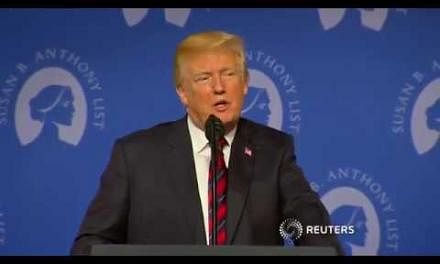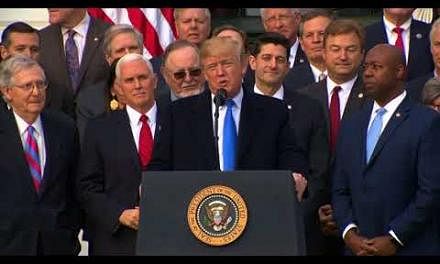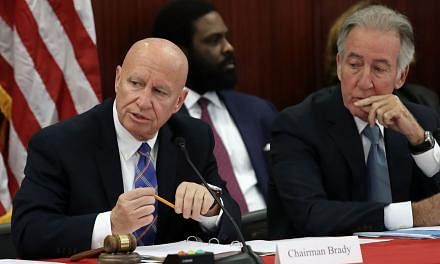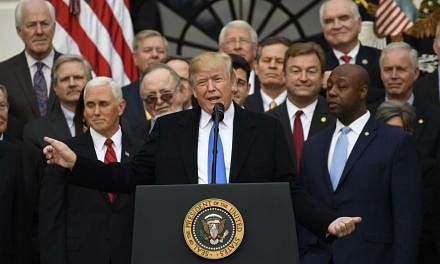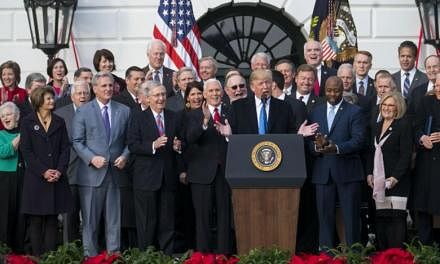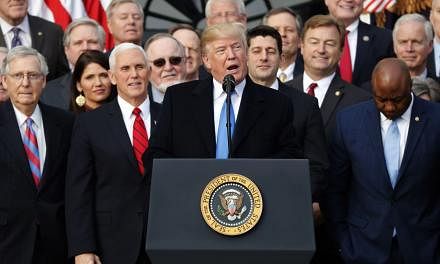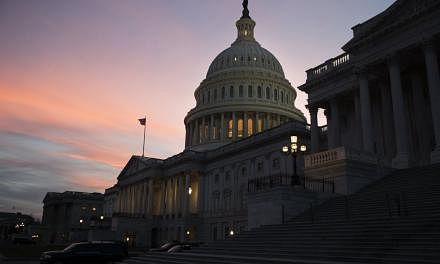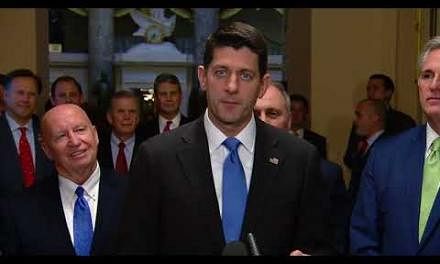WASHINGTON (AFP) - The sweeping tax cuts adopted on Wednesday (Dec 20) by US lawmakers while reducing rates on corporations, also aim to encourage multinational businesses to repatriate huge earnings amassed abroad.
US corporations, notably in the tech and pharmaceutical sectors, have for years accumulated profits offshore to avoid the comparatively high US tax rates of 35 per cent, although most companies in reality pay much less.
The stockpile of cash now stands at about US$2.5 trillion (S$3.36 trillion) , according to the congressional Joint Committee on Taxation.
In 2016, for example, Apple stashed more than US$200 billion abroad, while Microsoft parked US$100 billion, and Cisco, Oracle and General Electric all followed suit.
Some firms resorted to so-called corporate inversions, reverse mergers allowing them to be incorporated in low-tax countries, avoiding the US tax system altogether.
Last year, several inversion efforts, including the merger attempt by drug companies Pfizer and Allergan, drew the ire of American officials.
By dropping the top corporate rate to 21 per cent from 35 per cent and taxing only profits earned US territory, the reform represents an effort to make the United States more enticing to major corporations.
"Money frozen overseas and in parts of world and some of them don't even like us," President Donald Trump said on Wednesday in remarks celebrating the tax Bill's passage.
"And they had the money. Now they won't have the money long."
To help encourage earnings repatriation, the tax package includes a one-time, across-the-board tax break for companies that bring the cash back.
The incentive remains?
Businesses will have to make a one-time payment of 8 per cent or 15.5 per cent, on repatriated foreign profits, depending on whether the assets are cash or investments. This could bring US$220 billion to the Treasury, according to the Joint Committee on Taxation.
But Eric Toder, co-director of the Tax Policy Center, this particular policy measure would reward overseas investment.
"We are taxing them less on their foreign profits than on their US profits if they invest in low-tax countries," he told AFP.
After the tax Bill is enacted, foreign profits will be taxed at a minimum of 10.5 per cent - including amounts collected by local authorities - a level well below the 21 per cent US rate.
Toder said congressional scorekeepers were assuming the lower taxes would result in higher revenues, given the larger volume of repatriated profits.
But this still encourages companies to invest abroad, he said.
"They have an incentive to report and invest income in low tax countries." Industrial companies, such as makers of semiconductors, an industry prone to off-shoring like many that trade in intellectual property, welcome the new rules.
"We would have preferred lower repatriation rates but overall it's a strong Bill for the semiconductor industry," Joe Pasetti, a senior lobbyist at the Semiconductor Industry Association, told AFP.
Will it work?
The tax plan also aims to encourage companies to be active again on US soil, in particular those in IP-reliant industries, he explains.
US revenues derived from foreign sales of patented products will be processed for tax purposes as if they were earned by foreign subsidiaries, at a rate of 10.5 per cent rather than the new corporate rate of 21 per cent.
"It's really competitive, much more competitive than the current system," Pasetti said.
The US Chamber of Commerce believes the benefits will be shared widely following the disappearance of the "outdated" former tax system.
"Our tax system will now welcome capital within our borders for myriad uses such as job creation, wage growth, and investment," Caroline Harris, vice president for tax policy at the chamber, told AFP.
However, critics are sceptical the higher profits will be used for those purposes.
In 2004, under then President George W. Bush, Congress approved a similar tax break to encourage the repatriation of profits, and companies brought back about US$312 billion, subject to a 5.3 per cent rate.
But studies showed these funds were in large part used for share buybacks rather than for investments.

